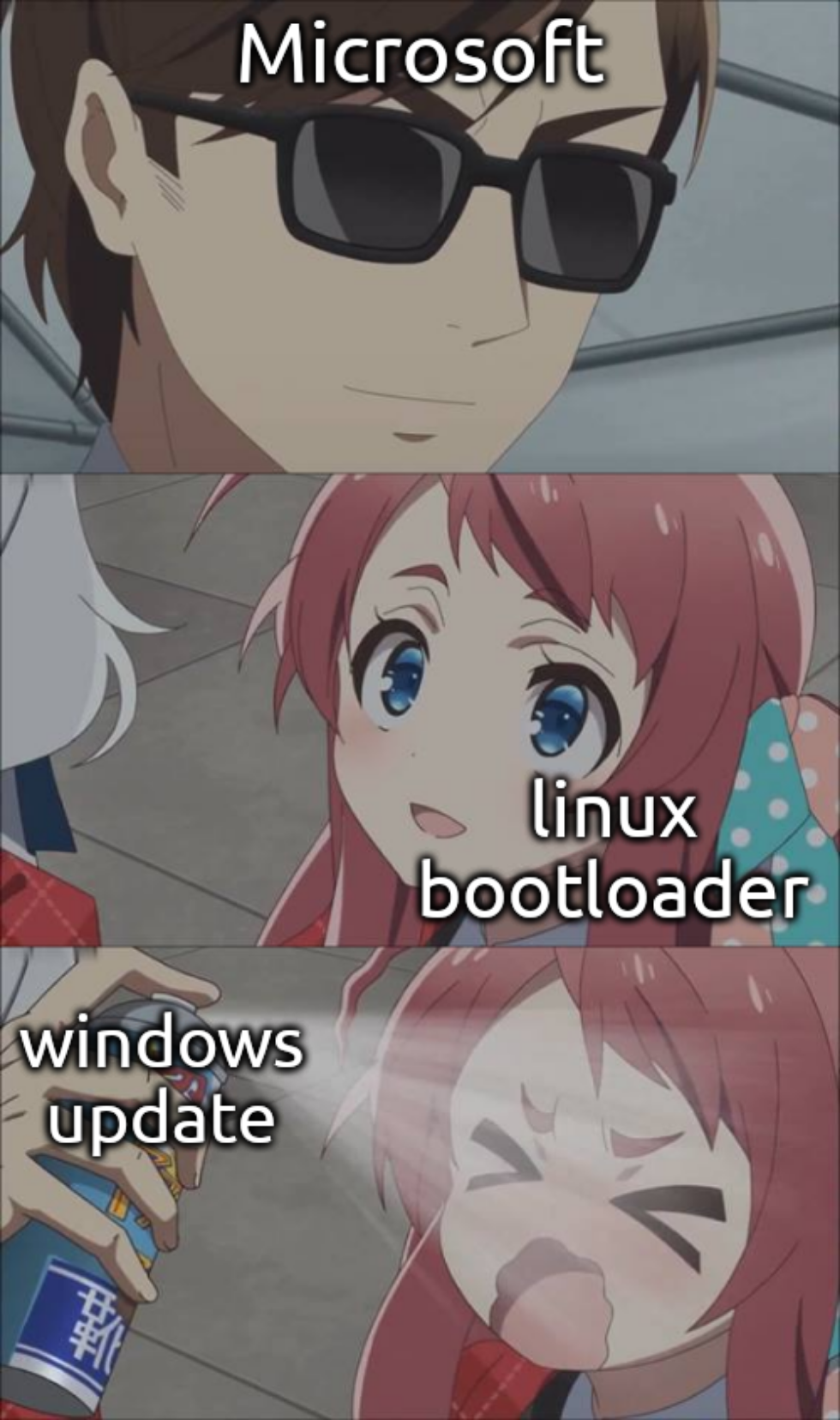this post was submitted on 25 Mar 2024
1216 points (97.4% liked)
linuxmemes
21210 readers
105 users here now
Hint: :q!
Sister communities:
- LemmyMemes: Memes
- LemmyShitpost: Anything and everything goes.
- RISA: Star Trek memes and shitposts
Community rules (click to expand)
1. Follow the site-wide rules
- Instance-wide TOS: https://legal.lemmy.world/tos/
- Lemmy code of conduct: https://join-lemmy.org/docs/code_of_conduct.html
2. Be civil
- Understand the difference between a joke and an insult.
- Do not harrass or attack members of the community for any reason.
- Leave remarks of "peasantry" to the PCMR community. If you dislike an OS/service/application, attack the thing you dislike, not the individuals who use it. Some people may not have a choice.
- Bigotry will not be tolerated.
- These rules are somewhat loosened when the subject is a public figure. Still, do not attack their person or incite harrassment.
3. Post Linux-related content
- Including Unix and BSD.
- Non-Linux content is acceptable as long as it makes a reference to Linux. For example, the poorly made mockery of
sudoin Windows. - No porn. Even if you watch it on a Linux machine.
4. No recent reposts
- Everybody uses Arch btw, can't quit Vim, and wants to interject for a moment. You can stop now.
Please report posts and comments that break these rules!
founded 1 year ago
MODERATORS
you are viewing a single comment's thread
view the rest of the comments
view the rest of the comments

There's mail apps for Linux. I think thunderbird is most popular.
My point was about corporate IT refusing to provide a mail server to the outside world.
So no IMAP/POP3 server or what do you mean? If so how does the web app work?
Webapp probably uses Exchange services internally and exposes only a web interface to the internet
Ah, I suppose that makes sense.
In the end, web front-ends always allow to expose selected parts of any kind of internal (potentially insecure) protocols to the internet through a demilitarized zone that only allows https protocol.
It's like being allowed to watch the data you are interested in through a glass window, but no touching :)